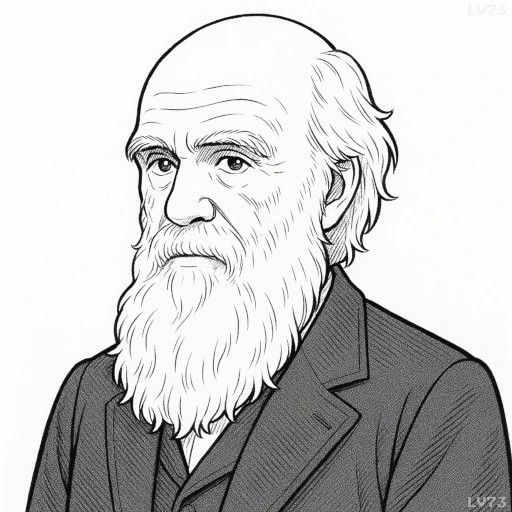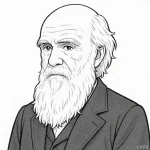“What a book a devil’s chaplain might write on the clumsy, wasteful, blundering, low, and horribly cruel work of nature!”

- February 12, 1809 – April 19, 1882
- Born in England (UK)
- Naturalist, geologist, biologist
table of contents
Quote
“What a book a devil’s chaplain might write on the clumsy, wasteful, blundering, low, and horribly cruel work of nature!”
Explanation
In this quote, Charles Darwin expresses his frustration with what he perceives as the harshness and seemingly wasteful aspects of nature. By invoking the image of a “devil’s chaplain,” Darwin uses dark imagery to suggest that, from a moral standpoint, the natural world is full of suffering, inefficiency, and cruelty. This comment reflects Darwin’s struggle with the apparent brutality of natural processes, especially when observed through the lens of evolutionary theory. The concept of survival of the fittest, which often involves competition, predation, and parasitism, can appear, at times, to be an incredibly harsh way for life to evolve and thrive.
Historically, Darwin’s reflections on the “wasteful” and “blundering” aspects of nature are a direct result of his observations of the natural world. Although his theory of natural selection demonstrated that seemingly inefficient or cruel behaviors had evolutionary benefits—such as ensuring survival and reproduction—Darwin himself struggled with the ethical implications of these processes. The suffering inherent in the animal kingdom, particularly in relation to predation, parasitism, and disease, troubled Darwin throughout his life, as he was raised with religious and moral beliefs that clashed with these natural realities.
In modern times, this quote highlights the ongoing philosophical and ethical questions raised by evolutionary biology and the study of nature. Even today, the apparent cruelty in nature—such as the predation of one species by another or the suffering of organisms in harsh environments—challenges our moral frameworks. This paradox is addressed in modern ethics, where discussions about the role of suffering in nature and natural law continue to reflect the tension between the inherent brutality of evolutionary processes and human concepts of justice and compassion. Darwin’s frustration remains relevant as it invites reflection on the complex relationship between nature, morality, and our understanding of life’s evolution.
Would you like to share your impressions or related stories about this quote in the comments section?
